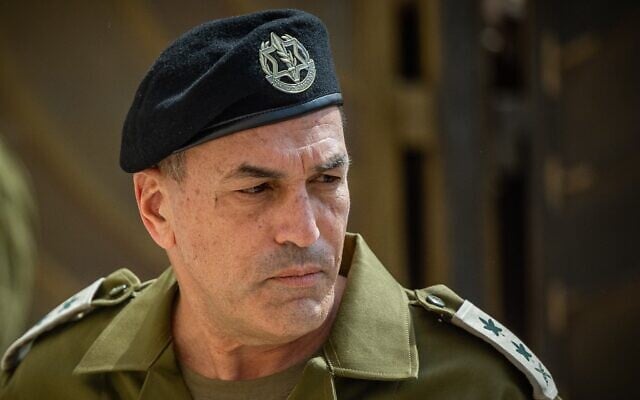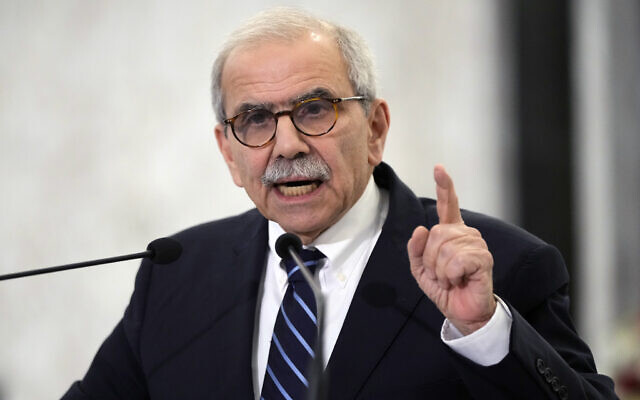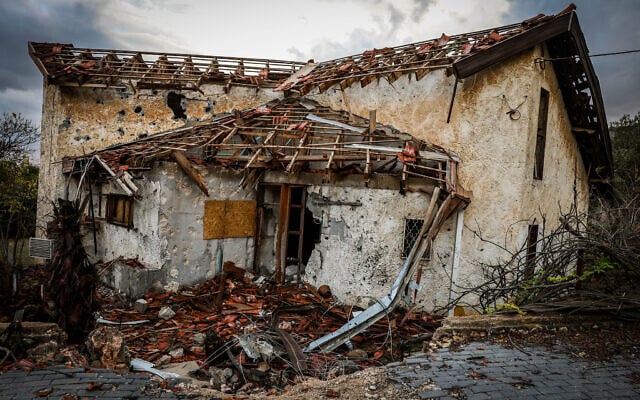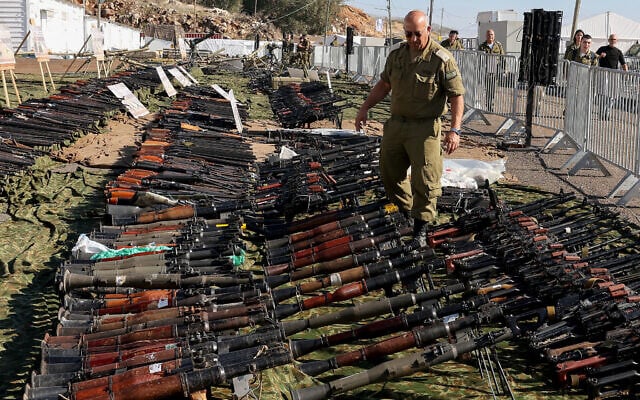


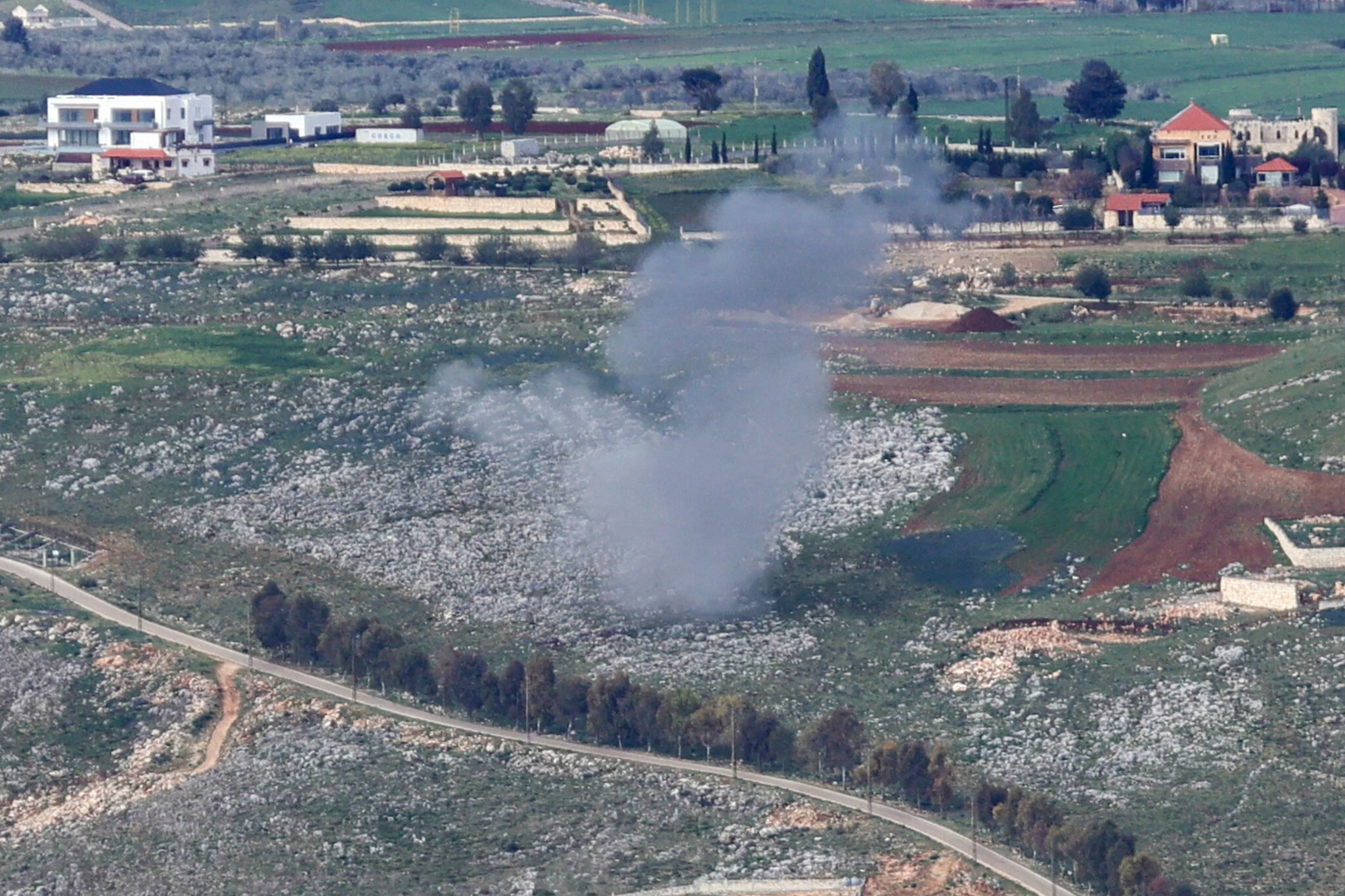
At least five rockets were fired from Lebanon at Metula on Saturday morning, the first rocket attack on the northern border since December.
There were no reports of injuries or damage in the attack and no immediate claim of responsibility from the Lebanon-based Hezbollah terror group.
The Israel Defense Forces said air defenses intercepted three projectiles that crossed the border, while the other two rockets apparently fell short in Lebanon.
The IDF reportedly responded with artillery fire against targets in south Lebanon.
The official National News Agency in Lebanon said Israeli planes were seen over eastern areas of southern Lebanon and that ground troops fired at the Hamames hills.
It also reported Israeli artillery fire on the Nabatieh district in the south and the town of Khiam, which was hit by “three shells [fired by] Merkava tanks.” Troops also fired automatic weapons at the border villages of Hula, Markaba and Kfar Kila, the news agency said.
Defense Minister Israel Katz said he instructed the IDF to respond to the rocket attack and issued an apparent threat to strike Beirut.
“We will not allow a reality of fire from Lebanon on the Galilee communities. We have promised security to the Galilee communities, and that is exactly what will happen,” he said in a statement.
Katz said that “the fate of Metula is the same as Beirut,” in an apparent threat to the Lebanese capital.
“The Lebanese government bears responsibility for any fire from its territory. I have instructed the IDF to respond accordingly,” he added.
The IDF said that it would “respond severely” to the rocket fire and that IDF Chief of Staff Lt. Gen. Eyal Zamir held a situation assessment.
“The State of Lebanon bears responsibility for holding up the [ceasefire] agreement,” the military said in a statement, adding that there were no changes to Home Front Command directives.
Lebanese Prime Minister Nawaf Salam warned his country was at risk of being drawn into a “new war.”
“All security and military measures must be taken to show that Lebanon decides on matters of war and peace,” Salam said.
“Salam warned of renewed military operations on the southern border, because of the risks they carry dragging the country into a new war, which will bring woes to Lebanon and the Lebanese people,” a statement read.
Meanwhile, mayors of northern towns expressed their anger at the situation.
Metula Mayor David Azoulay accused the government and the IDF Northern Command of trying “to normalize” a situation of occasional rocket fire from the north.
“We won’t allow them to normalize this. I call on Prime Minister Benjamin Netanyahu and of course IDF Northern Command head Maj. Gen. Ori Gordin to act offensively and make it so that not one bullet is fired ever again at northern communities,” he told the Ynet news site.
“This is a failure, this is exactly the policy of containment of [before] October 7,” he said. “Instead of dealing with nonsense, start providing security to the country’s residents.”
Azoulay has in the past described his town as “the most bombarded” along Israel’s border with Lebanon. According to assessments, some 60 percent of homes and other municipal buildings in the town have been totally destroyed by Hezbollah attacks.
Kiryat Shmona mayor Avichai Stern issued a statement, asking the military’s Northern Command chief if he still believed it was safe for people to return to their homes near the border.
“I have just one question for the head of the IDF’s Northern Command, Maj. Gen. Ori Gordin, who said that nothing is preventing a return to the north. Do you still think that?” Stern said in a statement cited by Hebrew media outlets.
A November 27, 2024, truce in Lebanon largely halted more than a year of hostilities between Hezbollah and Israel. The fighting came after the terror group attacked Israel on October 8, 2023, in support of its ally Hamas, which invaded, from Gaza, a day earlier. The persistent rocket fire from Lebanon displaced some 60,000 Israeli civilians.
Israel has continued to carry out strikes on Lebanese territory since the truce agreement took effect, saying it is acting against Hezbollah’s violations of the ceasefire.
Last month, Israel withdrew all its forces from southern Lebanon, except from five strategic points, saying it had received a green light from the US to remain at those posts and citing the need to prevent Hezbollah from returning to the area and threatening Israel.
The ceasefire also required Hezbollah to pull back north of the Litani River, about 30 kilometers (20 miles) from the border, and to dismantle any remaining military infrastructure in the south.
Times of Israel staff contributed to this report.

